In the middle of a frenetic live performance of Arivu’s tamil rap song “Anti-Indian”, the drums freeze and the music stops. Arivu pauses, gathers himself mid-jump, lands softly on the stage, looks at the audience, and says, “Vannakam” (Don’t confuse it with Modi’s famous, feeble attempt at establishing local connect, and garnering support in Tamil Nadu during polls).
Caught in the surge of his explosive, radical critique of the state, Arivu greets the audience as he catches his breath:
“Apologies for pausing the music. I'd like to say something and then continue...It doesn't matter if we're Tamilians or Indians or Malayalees...We are humans... just humans. That's it! So.. Only humanity lasts, only humanity is permanent. We are all one, and humanity is the binding force between us. So, I only wish to say that....”
It is a simple message, and might have sounded arrogant or flaky in the mouth of any other performer. But there is an honesty, and the real whiff of struggle and oppression that marks Arivu’s poetry. The simplicity and integrity of Arivu’s statement reminded me of a scene from My Big Fat Greek Wedding, where the Greek protagonist’s father finally finds a way to articulate his coming to terms with cultural differences “We all different, but in the end, we all….fruit”.
It is this raw, unfiltered expression of what he has seen and experienced as a person ‘stained’ by caste in a historically casteist and unequal society, that marks his unflinching reach, and his connection with the people. He speaks the same language, puts into words the dissent and dissatisfaction of thousands.
I’m the descendant of this struggle
What? Are you calling me an Anti-Indian?
What? Im a voting Tamil citizen of this nation
What? Are you calling me an Anti-Indian?
The song is a breathless assertion of identity, with words flung like sharp stones in the way that radical political poets such as Khader Moinuddin or Amiri Baraka turned poetry into a weapon. In fact, one is reminded of Baraka’s plea in “Black Art” - “…we want “poems that kill.”/ Assassin poems, /Poems that shoot guns.”
In this rendition at a festival in Chennai in May 2018, Arivu barely takes his eyes of the stand - “I had written the lyrics just the day before and did not have the time to memorise the words”. This is the poetry of anger. Wrenching caste atrocities, xenophobia, state indifference and hypocrisy, ruthless fascism, and predatory nationalism, into one potent blood-drenched hurl, Arivu’s voice rings out with unabashed courage. His words are forged in the furnace of his own struggles with power:
Born in a Dalit family, Arivu grew up in Arakkonam, 80 km west of Chennai. There was no television or radio as his teacher-parents wanted him and his sister to focus on their education. That meant the only music he heard during his childhood was folk — oppari (dirge), nattupurapattu, which translates to village song, and gaana, popularised by the Dalit settlements of north Chennai…
…He started writing poetry on poverty and caste in school, which continued into engineering college in Coimbatore, where he became more politically conscious.
While in Arakonnam people knew his caste from where he lived, in college the way of identifying his background was different. “They would ask if I ate beef or the lecturer would ask who among us were (Scheduled Caste) quota students”.
- Rapping truth to power
When Pa Ranjith was putting together a band called the “Casteless Collective”, he was called to audition and was selected. In fact, “Arivu considers Ranjith a mentor of sorts. “Any political doubt I have, I ask him. His politics is reclaiming human dignity. That’s my politics as well”.
While Arivu’s work has seen appreciation, and he has made his way into the Tamil music scene and the political rap arena, his recent hit along with the Sri Lankan artist Dhee “Enjoy Enjaami” has captured the public imagination. Written in a different strain, it is a celebration, another kind of anthem for today’s India. Still, I like Anti-Indian. I like it for the ripping nakedness of its take-down of power, and the insane logic of its political call to action and unity.
“In this country, where you commit arson
If I question you, I’m a traitor?
Death is one time, Dreams are infinite …
…No more will we wait for a tragedy
We reacted without organising
We'll fix it with rational thinking”
The poetry is a translation provided by the creators of the video itself. Make sure you read them in entirety, after watching the adrenaline rush of his live performance that went viral.
Subscribe to Poetly to feel the rush of words that poets craft our of their blood.
Share this post

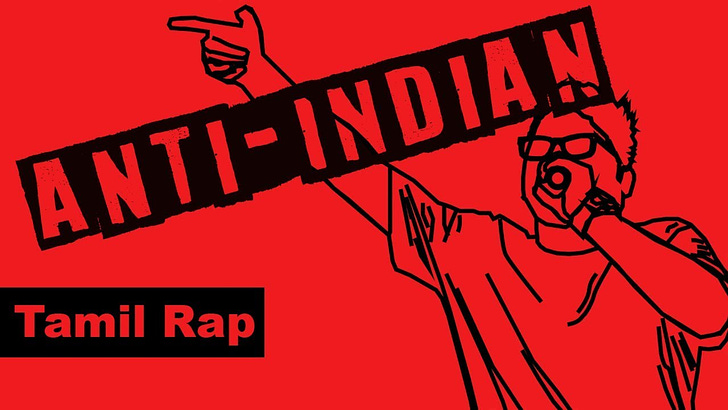

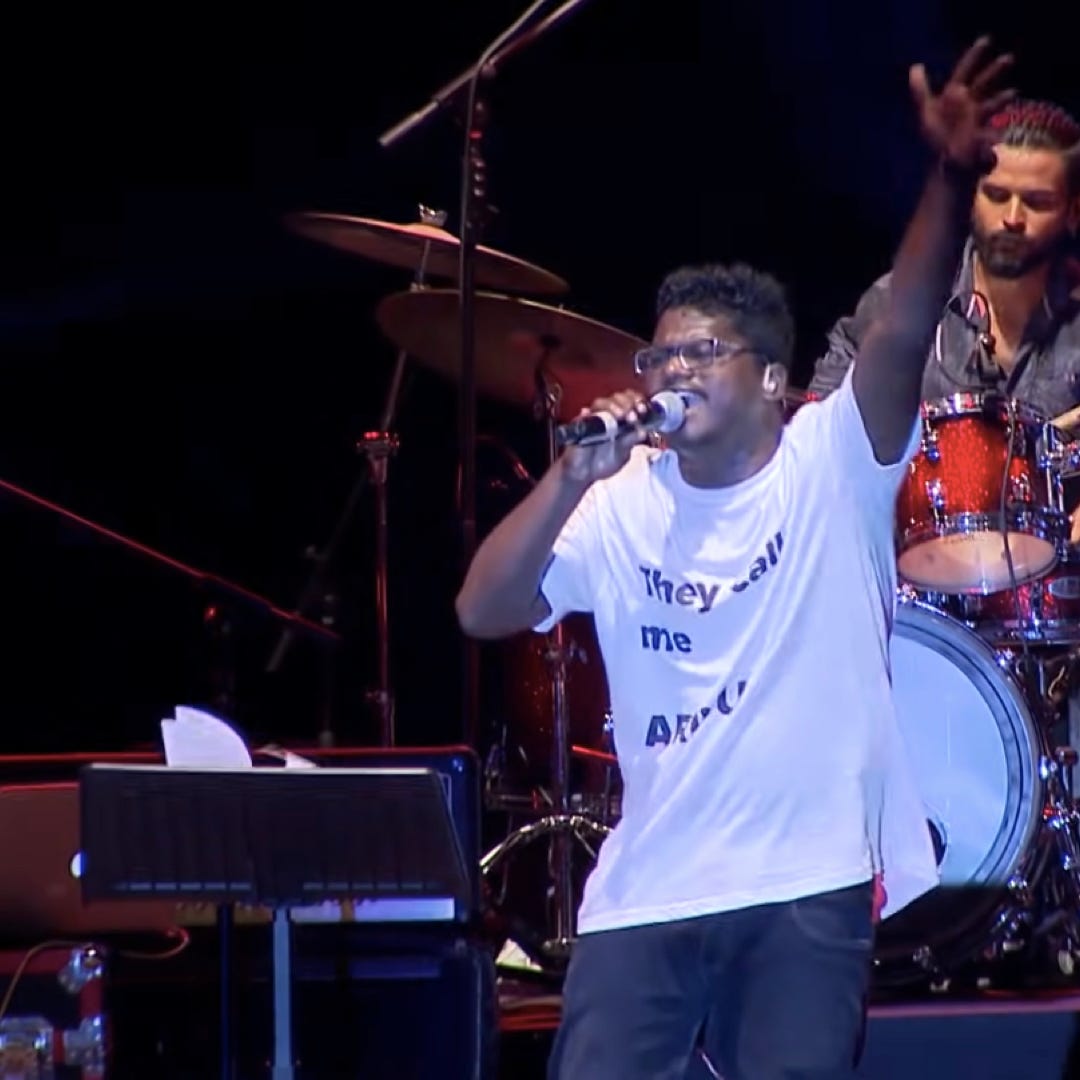
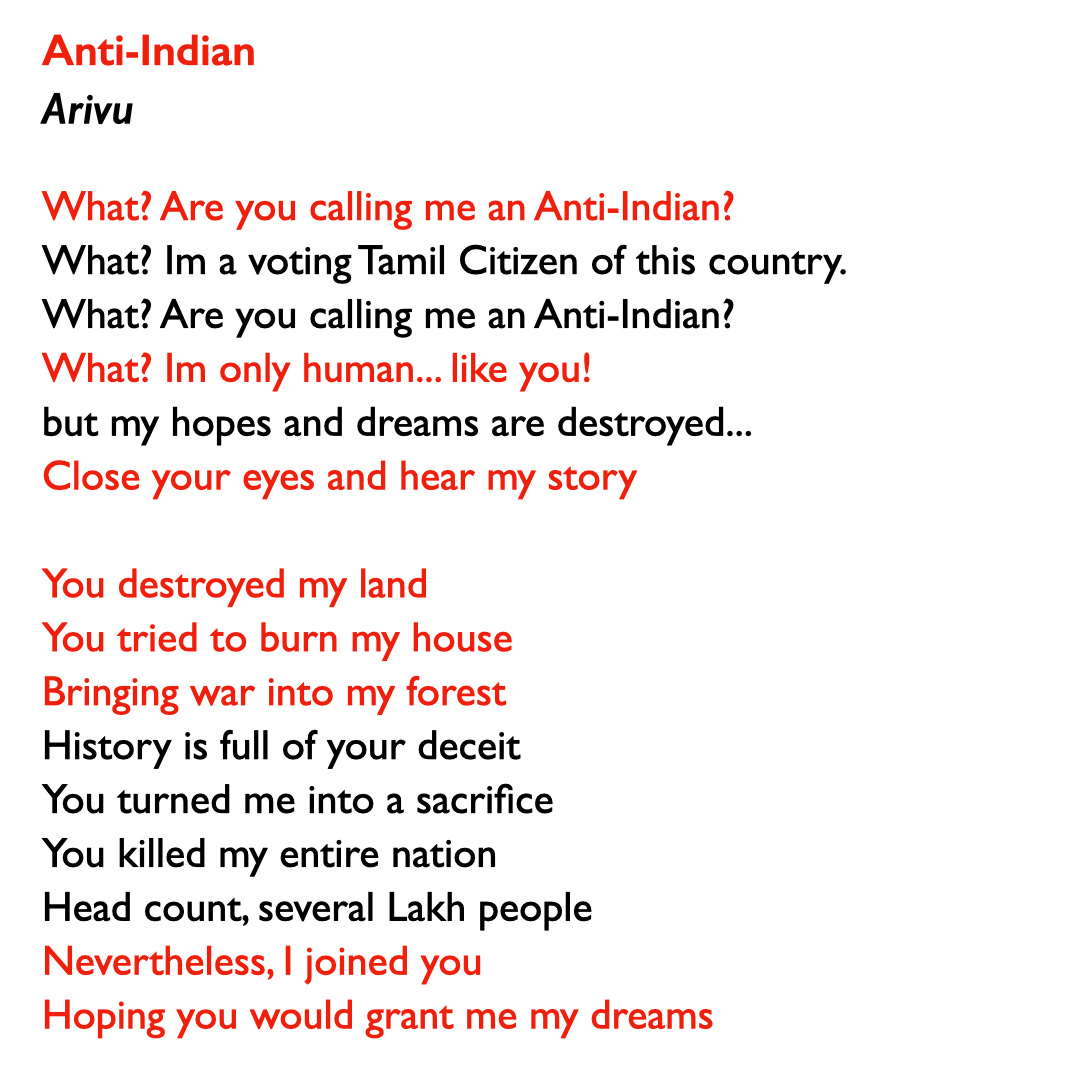
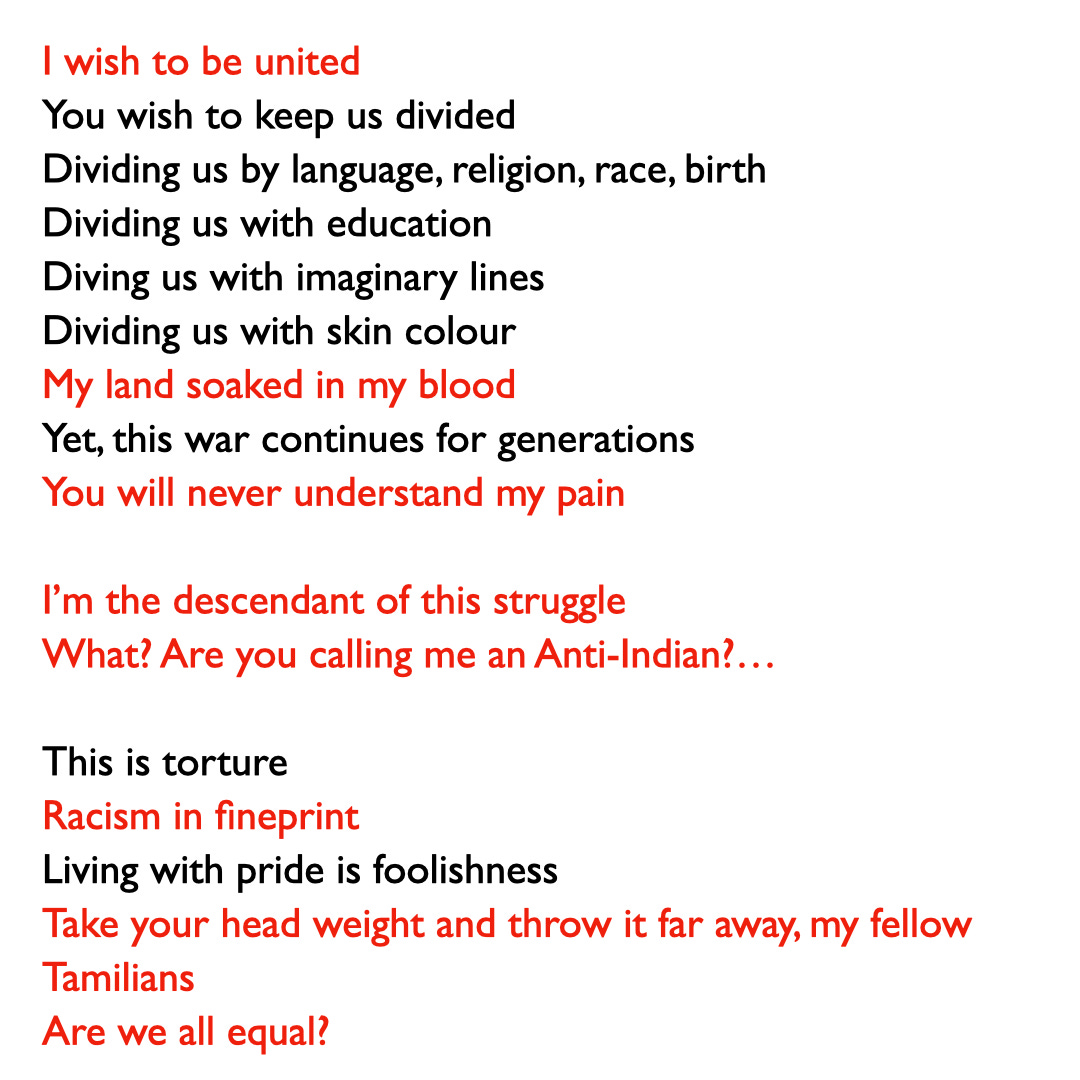

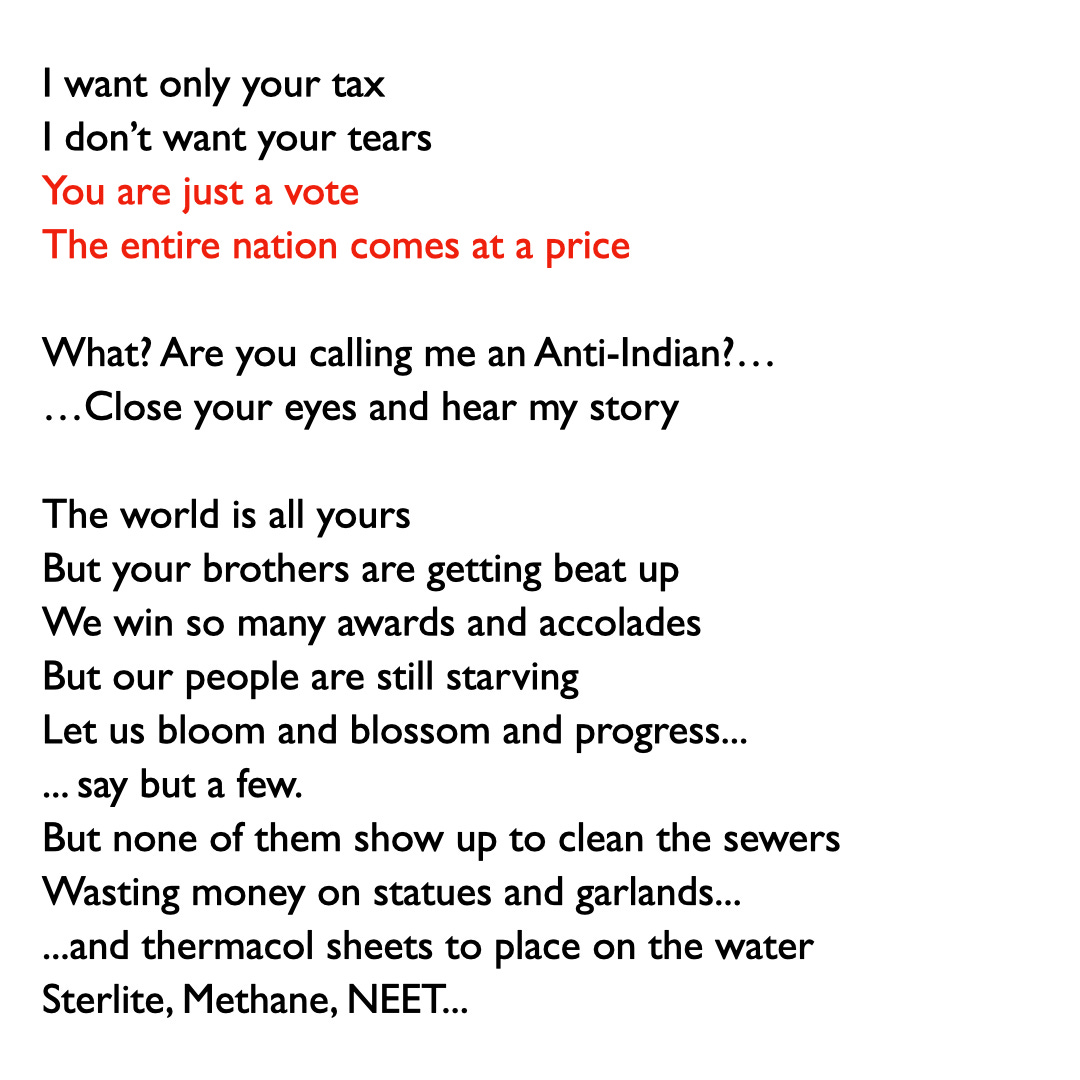
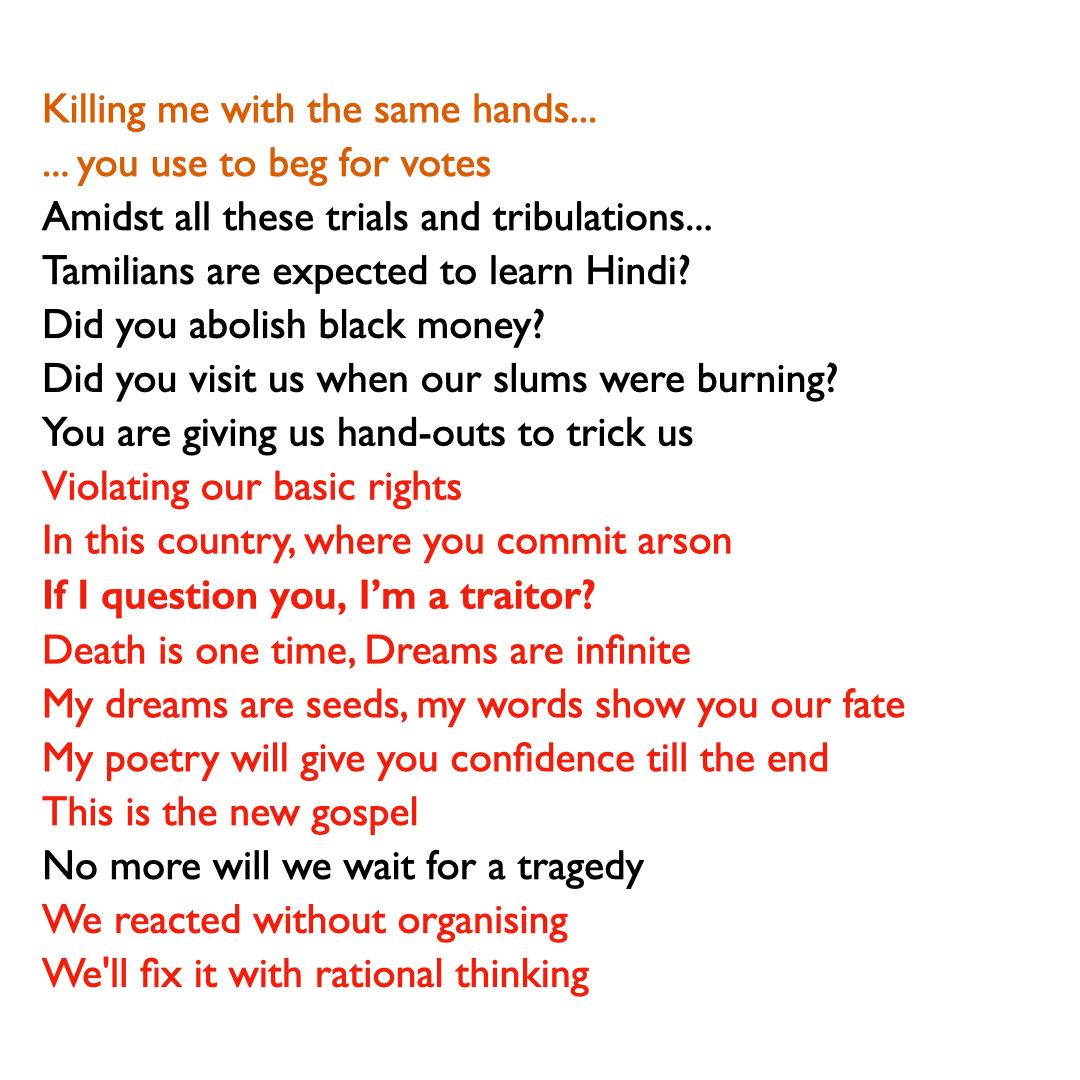

Too good! Thank you poetly.